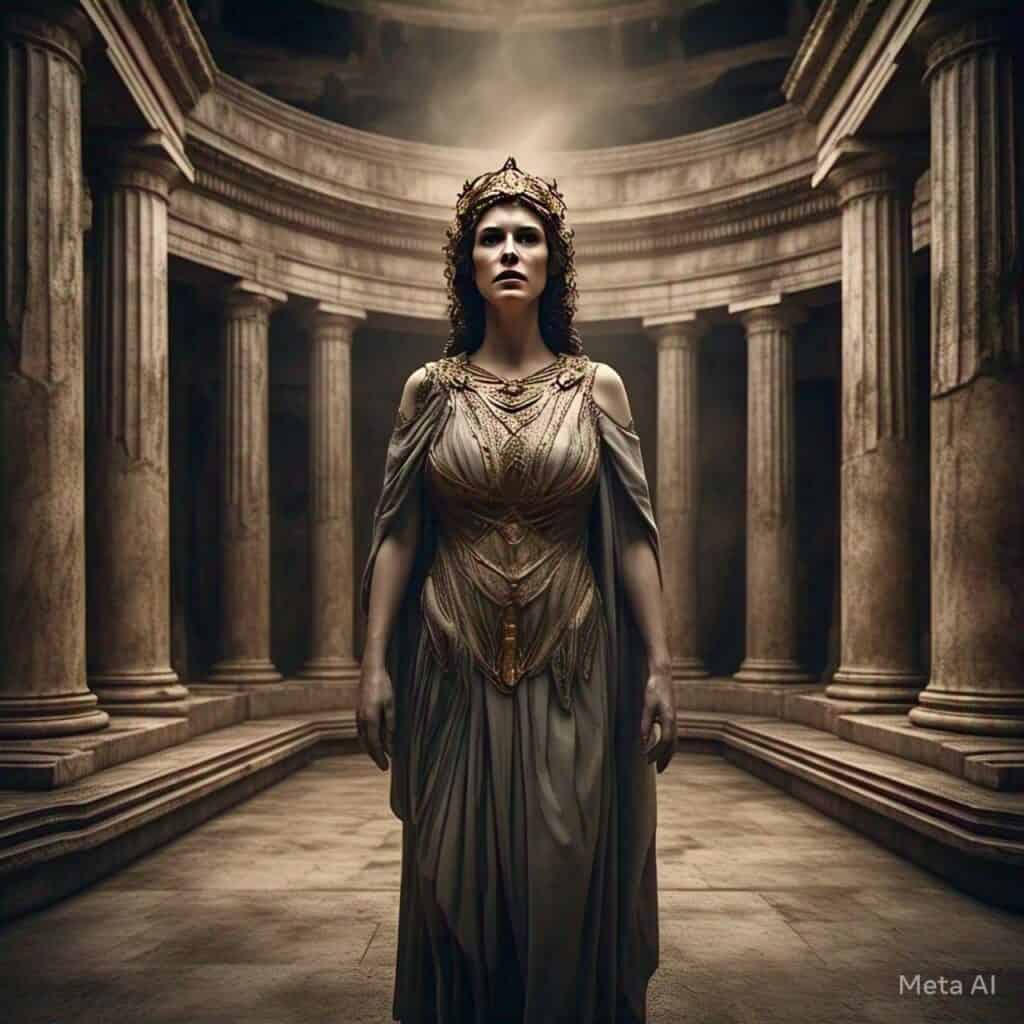Medea by Euripides: Revenge, Justice, and Gender in Greek Tragedy
Euripides (c. 480–406 BCE) was one of the greatest tragedians of ancient Greece, alongside Aeschylus and Sophocles. His plays were different from those of his predecessors because they focused more on human psychology, emotions, and social issues rather than divine intervention. He often presented strong female characters and explored the complexities of human relationships. One of his most famous tragedies is Medea, which tells the story of a woman’s extreme response to betrayal.
Plot Overview of Medea
Medea is a powerful tragedy that follows the story of Medea, a foreign princess and sorceress, who is married to Jason, the Greek hero famous for retrieving the Golden Fleece. The play begins when Jason abandons Medea and their children to marry Glauce, the daughter of Creon, the King of Corinth. Creon, fearing Medea’s wrath, orders her to leave the city immediately. Medea begs for one more day, during which she plots her revenge.
She sends a poisoned robe to Glauce, which kills her and Creon. Then, in an act of ultimate vengeance, Medea kills her own children to punish Jason. She escapes in a chariot sent by the god Helios, leaving Jason devastated.
The play raises deep questions about revenge, justice, and gender roles, making it one of the most complex tragedies in Greek literature.

Theme of Revenge
Revenge is the central theme of this play. Medea is humiliated and betrayed by Jason, and her response is extreme. Instead of accepting her fate, she takes revenge not only on Jason but also on his new wife and father-in-law. However, her most shocking act is killing her own children, which makes the audience question whether revenge can ever be justified.
Euripides challenges the traditional idea of revenge in Greek tragedy. Unlike Aeschylus, who portrayed revenge as a cycle of bloodshed that the gods eventually resolve, Euripides shows revenge as a deeply personal and destructive force. Medea’s actions are not guided by the gods but by her own emotions and intelligence, making the tragedy feel more human and psychological.

Theme of Justice
The play also explores the idea of justice. Medea believes that Jason has wronged her by breaking his oaths and abandoning her. In ancient Greek society, oaths were sacred, and breaking them was considered a serious offense. However, her idea of justice is twisted by her emotions, leading her to commit horrifying acts.
At the end of the play, she escapes without facing punishment, leaving the audience to question whether she achieved justice or simply spread more suffering. The play does not give clear moral answers, which is a key feature of Euripides’ tragedies.

Theme of Gender
Euripides was known for his portrayal of strong female characters, and Medea is one of the most powerful women in Greek drama. She is intelligent, passionate, and refuses to accept the limited role of women in society. In her famous speech, she argues that women suffer more than men because they are expected to be obedient and cannot defend themselves.
However, her actions challenge the traditional role of women. Instead of being a passive victim, she takes control of her fate. She uses deception, intelligence, and magic to achieve her goals, showing that women can be just as powerful—and dangerous—as men.
Conclusion
Medea is a tragic exploration of human emotions, betrayal, and the consequences of revenge. Euripides presents Medea as both a victim and a villain, making the audience question their own moral judgments. His focus on psychology, emotions, and social issues makes his tragedies unique and influential. Even today, this tragedy remains a powerful story about the dark side of human nature and the complexities of justice and gender roles.
Read More
Plot Construction in Pride and Prejudice
Introduction to Fiction and Non Fiction
Of Death — Francis Bacon (Text)
Of Truth Critical Analysis by Sir Francis Bacon
Of Truth by Francis Bacon Summary
Visit Us on our Facebook Page:




